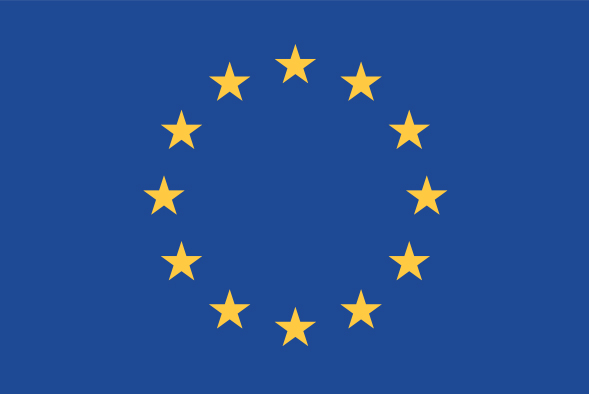Marialuisa Lavitrano, Full Professor at University Milano Bicocca, explores the need for a European School for the Management of Research Infrastructure to enhance expertise in European research infrastructure management
European Research Infrastructures (RI) are complex organisations that offer the research communities access to cutting-edge resources, data, and services to conduct research and foster innovation in their fields.
RIs include major scientific equipment (or sets of instruments), knowledge-based resources such as collections, archives, and scientific data, e-infrastructures, such as data and computing systems and communication networks, and other tools and services essential to achieving excellence in research and innovation. RI span the whole spectrum of knowledge from social sciences to astrophysics, including environmental sciences and large-scale infrastructures.
RIs are also at the centre of the European Commission’s policies to promote and support Open Science and Open Innovation strategies, which require a systemic evolution to contribute to achieving the 17 Millennium Goals for sustainable development.
Implementing European Research Infrastructures
Europe has a solid history of implementing RIs; over 1,000 existing RIs – as mapped by the Meril-2 Project – received support to foster coordination, transnational access, and use of facilities for top-level scientists. Furthermore, the Member States and the European Commission set up the European Strategy Forum for Research Infrastructures (ESFRI) to support a coherent approach to policymaking
on RIs.
This led to the development of 62 pan-European research infrastructures, carrying out activities supporting both basic and applied research across all scientific sectors, from the humanities and social sciences to the biomedical sciences, materials, the environment, and physics, which have received support at national or European level with over 20 billion in investment and approximately 2.5 billion in operational costs/year.
Enhance expertise in European research infrastructure management
RIs operate at the leading edge of scientific and technological feasibility, rely on scientists/researchers across countries, and need to work with many different stakeholders and funding mechanisms. Managers of RIs must have a scientific understanding, be part of the scientific user community, and, at the same time, balance the scientific and management skills necessary for the operation of expensive facilities and build partnerships with many international actors.
Successful research infrastructure management depends on several key aspects. Strategic planning involves aligning activities with national and European Union strategies, ensuring coherence in development and operation. Financial management requires adherence to funding guidelines and transparent reporting. Governance structures and coordination mechanisms are essential for efficient decision-making and enhanced collaboration.
Compliance with ethical standards, legal regulations, and regular impact assessments form the foundation of effective research management. These key activities are possible
only if highly qualified research managers and scientists enhance their expertise and develop professional managerial skills.
Executive Masters’ in Management of Research Infrastructures
An important initiative tailored to the needs of Research Infrastructures is the Executive Masters’ in Management of Research Infrastructures (EMMRI) program at the University of Milano- Bicocca. EMMRI is an outcome of RITRAIN, an EU-funded Horizon 2020 project to improve and professionalise managerial and leadership staff training in RIs.
EMMRI is a part-time MBA whose programme is grounded in the belief that effective RI leadership necessitates a deep comprehension of the scientific landscape, complemented by the attitude to cultivate strategic partnerships, manage multidisciplinary teams, and navigate the constantly evolving political and policy landscape.
The Master’s programme allows participants to acquire skills in strategy, governance, organisation and personnel management, financial management and budgeting, service management, and communication without neglecting ethical and legal aspects in an international context. The fifth edition is underway, and the sixth will start soon.
EMMRI has so far trained over 200 professionals from all over Europe, promoting the culture of inclusion and the quality of research results with an eye on environmental and ethical-social challenges. The Alumni of the Master participate in a pan-European network of leaders with recognised specific managerial expertise, and, over the years, among them, they have been selected. For example, general directors of RI such as the Joint Institute for Very Long Baseline Interferometry European Research Infrastructure Consortium (JIVE-ERIC), the European Marine Biological Resource Centre (EMBRC-ERIC), the European Multidisciplinary Seafloor and water column Observatory (EMSO), or the Research Data Alliance (RDA) and members of the board of European Open Science Cloud (EOSC) Association.
Establishing a European School for Management of Research Infrastructure
The concept of the School was born as part of the EU H2020 funded RItrainPlus project, with the input and contribution of various stakeholders, as a dedicated sustainable training organisation capable of addressing, through a long-term business model, specialised training courses and workshops to meet the needs for professional skills on research management.
The School should be in charge for:
- Curricula design and development based on the analysis of needs and programmes defined in RItrainPlus. Because of the diversity of disciplinary knowledge and skills needed, the School will deliver short, certifiable (Micro-Credentials), standard Learning Activities (LAs) focused on transversal topics and critical to managing every RI. The LAs on each topic will be at three increasing levels of depth, thereby building a certifiable longitudinal learning track.
- Design and deliver executive post-graduate courses to meet the needs for professional skills on issues related to governance, management, organisation, financial, socio-economic impact analysis, internationalisation of RIs, and accreditation of courses delivered by other providers.
- Training for trainers and training kit for learners created to contribute to the sustainability and scalability of the training initiatives.
- Ultimately, deliver a European Diploma for Managing Research Infrastructures.
The courses seek to meet the competency requirements as defined by the competency profile developed in RItrainPlus. The pilot programme, delivered in 2023, attracted great interest and received 277 applications from over 40 countries.
The experience gained in defining an education and training programme for RIs could be extended to define a programme for managing Research Performing Organisations.
More information


This work is licensed under Creative Commons Attribution-NonCommercial-NoDerivatives 4.0 International.


